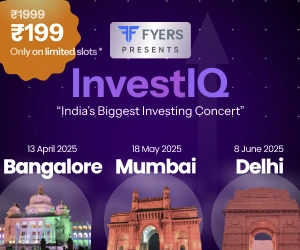Get Unlimited Plan at 75% OFF!
SVC Industries

No Data Available
Investor Sentiment
SVC Industries Share price and Fundamental Analysis
Key Metrics
Stock Returns
CAGR
Revenue Growth
Net Profit Growth
Operating Profit Growth
Dividend Growth
Stock Returns CAGR
Stock Heatmap

No Stocks
Smart Score

Unlock Smart Score
See Detailed Analysis & Insights


Unlock Insights
See Detailed Analysis & Insights
Technicals
Returns Calculator
If you would have investedResearch Report
No Research Report
Corporate Action
Financials
Key Ratios
ROE
Avg ROE (3 Yrs) : NaN%
ROCE
Avg ROCE (3 Yrs) : NaN%
ROA
Avg ROA (3 Yrs) : NaN%
NPM
Avg NPM (3 Yrs) : NaN%
Dividend History
5 Year FactSheet
Documents

No Data Available
News
SVC Industries Management and History
Company Management


Unlock Management Data
See Detailed Analysis & Insights
Company History
SVC Industries Ltd (Formerly known as SVC Superchem Ltd (SVCL) was incorporated on August 29, 1989 led by Promoter, Mr. Suresh Chaturvedi. The Company had set up a PTA plant at village Chhata in district Mathura in the State of UP. The plant, after successful trial run, was put under shut down since September 2000 due to various reasons beyond control of the Company.
The Company abandoned its PTA project in 2018 and is utilizing its infrastructure for some new industry as advised by international consultants EY. The Company with a few other partners had set up a new special purpose vehicle (SPV) in the name of M/s. Nandavan Mega Food Park Private Limited for setting up a Mega Food Park on its existing land. The company which was earlier engaged in trading in steels and chemicals like benzoplast, acetone, pine oil, toluene, benzene, phenol, etc, had discontinued the trading activities in Jul.'94 to concentrate on its PTA project.
SVCL has a technical collaboration with Tecmor, the US. The company is implementing a project to manufacture 1.2 lac tpa purified terephthalic acid (PTA) at Chhata (Mathura district), Uttar Pradesh. It has issued FCDs, aggregating Rs 216 cr, to finance the PTA project. Trial test has been commenced. The company proposes to set up facilities for petro products which will have synergy with the existing PTA project.
Due to the delay in the approved and sanctioned release of the required funds, continuous operations could not be sustained resulting in various start up and shut down of trial runs.
Tata Consulting Engineers Limited and SBI Capital Markets Limited have submitted a detailed report covering technical and financial aspects based on which the restructuring proposal was prepared by IFCI Ltd., which is under active consideration by the consortium of lending Banks and Financial Institutions. The Company is awaiting releasse of required resources recommended by the appropriate agencies in order to start the plant and achieve commercial operations.
National Company Law Tribunal (NCLT) vide its order dated July 28, 2020 has approved amalgamation of certain promoter and non promoter companies. SVC Growth Funds Private Limited, Chaturvedi Engineering and Trading Private Limited, Krishna Advisors Private Limited, Anaya Global Suppliers Private Limited, All in One Finance and Investments Private Limited, Akash Organics Private Limited, Yamuna Estates Private Limited, Leo Plasto-Chem Private Limited, Ayog Computech Private Limited and Clever Fabric and Fashions Private Limited (Transferor Companies) have been amalgamated with Akhill Marketing Private Limited (Transferee Company). As per the said order all assets and liabilities of the transferor companies are required to be incorporated in the books of transferee company.
SVC Industries Share Price
SVC Industries share price reflects investor sentiment toward the company and is impacted by various factors such as financial performance, market trends, and economic conditions. Share price is an indicator which shows the current value of the company's shares at which buyers or sellers can transact.
SVC Industries Market Cap
Market capitalization of SVC Industries indicates the total value of its outstanding shares. Marketcap is calculated by multiplying share price and outstanding shares of the company. It is a helpful metric for assessing the company's size and market Valuation. It also helps investors understand how SVC Industries is valued compared to its competitors.
SVC Industries PE Ratio
SVC Industries PE ratio helps investors understand what is the market value of each stock compared to SVC Industries 's earnings. A PE ratio higher than the average industry PE could indicate an overvaluation of the stock, whereas a lower PE compared to the average industry PE could indicate an undervaluation.
SVC Industries PEG Ratio
The PEG ratio of SVC Industries evaluates its PE ratio in relation to its growth rate. A PEG ratio of 1 indicates a fair value, a PEG ratio of less than 1 indicates undervaluation, and a PEG ratio of more than 1 indicates overvaluation.
SVC Industries ROE (Return on Equity)
Return on Equity (ROE) measures how effectively SVC Industries generates profit from shareholders' equity. A higher ROE of more than 20% indicates better financial performance in terms of profitability.
SVC Industries ROCE (Return on Capital Employed)
Return on Capital Employed (ROCE) evaluates the profitability of SVC Industries in relation to its capital employed. In simple terms, ROCE provides insight to investors as to how well the company is utilizing the capital deployed. A high ROCE of more than 20% shows that the business is making profitable use of its capital.
SVC Industries Total Debt
Total debt of SVC Industries shows how much the company owes to either banks or individual creditors. In simple terms, this is the amount the company has to repay. Total debt can be a very useful metric to show the financial health of the company. Total debt more than equity is considered to be a bad sign.
SVC Industries Debt to Equity Ratio
The Debt-to-Equity (DE) ratio of SVC Industries compares its total debt to shareholders' equity. A higher Debt to Equity ratio could indicate higher financial risk, while a lower ratio suggests that the company is managing its debt efficiently.
SVC Industries CAGR (Compound Annual Growth Rate)
CAGR shows the consistent growth rate of SVC Industries over a specific period, whether it is over a month, a year, or 10 years. It is a key metric to evaluate the company’s long-term growth potential. Main metrics for which CAGR is calculated are net sales, net profit, operating profit, and stock returns.
SVC Industries Technical Analysis
Technical analysis of SVC Industries helps investors get an insight into when they can enter or exit the stock. Key components of SVC Industries Technical Analysis include:
Support Levels (S1, S2, S3)
There are usually multiple support levels, but the main support levels for a stock are S1, S2, S3. Support levels indicate price points where stock might get support from buyers, helping the stock stop falling and rise.
Resistance Levels (R1, R2, R3)
There are usually multiple resistance levels, but the main resistance levels for a stock are R1, R2, R3. Resistance levels represent price points where SVC Industries shares often struggle to rise above due to selling pressure.
SVC Industries Dividends
Dividends refer to the portion of the company’s profits distributed to its shareholders. Dividends are typically paid out in cash and reflect SVC Industries ’s financial health and profitability.
SVC Industries Bonus Shares
Bonus shares are usually given by companies to make the stock more affordable, increase liquidity, boost investor confidence, and more.
SVC Industries Stock Split
Stock split increases the number of its outstanding shares by dividing each existing share into multiple shares. When the company offers a stock split, the face value of the stock reduces in the same proportion as the split ratio.
SVC Industries Financials
The financials of SVC Industries provide a complete view to investors about its net sales, net profit, operating profits, expenses, and overall financial health. Investors can analyze financial data to assess the company’s stability and also understand how the company has been growing financially.
SVC Industries Profit and Loss Statements
The profit and loss statement of SVC Industries highlights its net sales, net profit, total expenditure, and operating profits in the current financial year. This Profit and Loss statement is crucial for evaluating the profitability and financial stability of SVC Industries .
SVC Industries Balance Sheet
The balance sheet presents a snapshot of SVC Industries ’s assets, liabilities, and equity of shareholders, providing insights into the financials of the company.
SVC Industries Cashflow Statements
Cashflow statements track the company's cash inflows and outflows over a period. It is an essential tool for understanding how well the company manages its liquidity and finances.

Download the App


